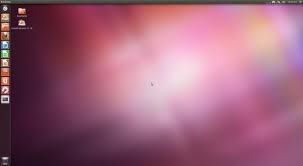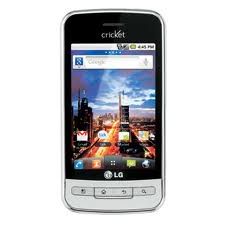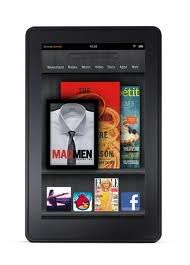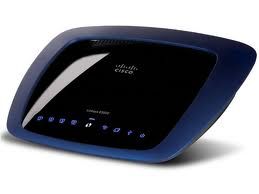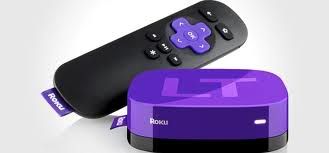Written by DomCan2 aka 1ROXTAR
My journey with Linux began in 2009, one week before the release of Ubuntu 9.04. I was a long-time Windows user who knew of nothing else, but what Microsoft had to offer for my computer. Years of frustration culminated with me clicking away on Google to look for an alternative, if there was even one. Boy, did my eyes fill with wonder as I found out about Linux, in general, and more specifically Ubuntu. I read and read about it and came to find out that I could test drive it right from the cd itself. It works! It really works! I was ecstatic. I was free from the shackles of Microsoft Windows.
Ubuntu 9.04 made it's way onto my computer and I have not looked back since. From that time on, I have come to realize that Linux was all around me and I didn't even know it. With my personal education furthered, I came to the conclusion that I no longer wanted to support anything Microsoft made. I wanted everything that had Linux in it. As a side note, I don't want to buy or use any Apple products either because of their patent wars, bullying and strong-armed tactics.
I want to support Free and Open Source Software (FOSS), Linux, and anything Linux compatible. So I got to thinking. How much Linux can I Linux in my personal life? In this article I want to show you what I use and support and through your posted comments, I would like to know how much do you Linux? I am not a wealthy man, so much of what I use falls under the lower to middle range as far as cost goes, but I am more than happy with each of these items. They make my life productive and fun. Plus, I feel the satisfaction that I am supporting Linux in it's various forms.
For My Computers: UBUNTU (11.10)
Ubuntu was my portal to the world of Linux and I will always have a sweet spot for it. Although coming from a Windows only background, the transition was quite easy to make. Ubuntu was easy to learn and fun to use. My appreciation for Canonical and Ubuntu borders near fan-boyism, I have to admit. The reason being is because I seem to be one of the few where everything has always gone right using Ubuntu. If I ever borked a computer it had to do with my tenacious curiosity to tweak and experiment, thus breaking it sometimes. Problems have been minor as the majority of my hardware was many times supported out of the box. Being a local computer tech in my small town, I have turned many of my customers to Ubuntu and I have never had anyone want to switch back to their previous propriety operating system. I am aware of the many other great distros that we have and I support people using what works for them. We have so much freedom and choice and I believe that is more our strength than a weakness.
My Smartphone: ANDROID (LG Optimus C)
For my smartphone needs I have the LG Optimus C from Cricket ($199), powered by the Android operating system. Android is the Linux based operating system for both smartphones and tablets. Unlike the tightly closed nature of Apple's iOS, Google releases Android code as open source (under the Apache license) and is free for OEM's and developers to use. I know that many people can argue just how open it really is, but the fact is the code is available for developer's to work with. Android has taken the mobile scene by storm and can be considered by far the biggest mainstream success for Linux. Who can argue with over 300,000 apps available, 10 billion downloads (as of Dec. 2011), over 200 million devices in use and 700,000 daily activations?
My Tablet: AMAZON KINDLE FIRE
The Kindle Fire is a 7" tablet that runs a modified version of Google's Android operating system (2.3 Gingerbread). This nifty device is closely integrated with Amazon's App Store, it's video and music streaming services and Kindle's e-books. My favorite is the very affordable $199 price tag. Despite getting some tough reviews, I find my Kindle Fire to be a joy to have around and use everyday. I am an Amazon Prime subscriber and I do a lot of my shopping from Amazon.com, so having a tablet that ties in so closely on a mobile device is very, very convenient for me. Plus the user experience is not really as shabby as some reviewers make it out to be. I am more than happy to own this device. It's not supposed to be an iPad so it is unfair and pointless to compare it to such a product. In my opinion, it does what it's supposed to do and I say it does it darn well.
My Router: CISCO LINKSYS E3000
I just recently discovered that my Cisco Linksys E3000 ($98) also runs Linux. This router is so good looking and performs amazingly well. The E3000 delivers true dual-band, Gigabit Ethernet, fast throughput, a long range and NAS functionality. It streams online media smoothly and is easy to set up and use for novices. I am stoked to know that the router that feeds wifi to my computers, smartphone and tablet runs Linux.
My Streaming Player: ROKU LT
This my newest toy and I love it! The ROKU LT packs so much punch for such a small device. It is very small, yet it delivers HD videos (720p), built-in wireless, 350+ channels, Live sports, and free movie selection from Crackle. I get my Netflix and Amazon video streaming with the Roku LT, as well as Hulu+ and Pandora. What makes this so hard to beat is the price $49. Take that AppleTV!
When you surround yourself with Linux, you can breathe so much better. Linux is powerful, fast and secure. Just because it is also free does not make it inferior by any means. I know it has been an uphill battle to capture the minds and hearts of mainstream desktop users. Nevertheless, at this day and age, when someone says "show me what Linux can do", we have many, many excellent devices and software to put before them with confidence. My computers are fast, powerful and virus free. I can edit audio and video. I can rip cd's. I can convert and burn dvd's. I can play any video and audio file. I can surf the web, create and edit documents, video chat, blog, upload photos, connect my mobile and media devices and stream media. I can do this and much more. With Linux I have so many choices and I am free to enjoy my computers and devices again. This is how I Linux. How much do YOU Linux too?
1ROXTAR
An Ubuntu Power User Blog
Tuesday, January 3, 2012
Monday, October 17, 2011
My Desktop Is Changing
The Growing Pains Of An Evolving Desktop
Written by 1ROXTAR
Hello to everyone in Linux land. As
you know by now, Ubuntu 11.10 codenamed Oneric Ocelot, has been
released into the wild since October 13th. There have been many
changes since 11.04 made it's controversial debut featuring Unity as
the default desktop, instead of the standard Gnome. This has
continued with Oneric, with the biggest factor being that the
traditional Classic Gnome 2x will no longer be available, as the new
fall back will be the newly refined and integrated Unity 2D.
This release has added a lot of spit
and polish with a lot of work going into Unity and, in my opinion, is
looking like a beautiful and efficient desktop. The dash is coming
along with elegance and integrated with Scopes and Lenses, making
finding applications easier and quicker. So much has already been
written about it's features that I will include the release notes
because my goal is to tackle other issues with this particular blog.
UBUNTU 11.10 RELEASE NOTES:
I have been following the Ubuntu 11.10 development
process through the Alpha releases and continually updating all the
way through until the final release, filing bug reports,
participating in forum discussions and reading through many blogs.
One thing that I have noticed consistently is that since Ubuntu 11.04
debuted with Unity as the default environment, there has been nothing
but grumbling and Ubuntu bashing everywhere. You cannot read through
Linux forums without coming across many threads entitled, “Goodbye
Ubuntu”, “Going to KDE...XFCE...LXDE...etc” or the proverbial,
“That's It I'm Moving To Arch”.
As I have stated in another blog,
whenever some new adopters post that they love Ubuntu with Unity,
they are greeted with much disdain by power users who hate having
their customizations limited and locked down by default. This is
where all the chagrin is stemming from. In previous versions, Ubuntu
used the standard Gnome 2x or “Classic” desktop by default. What
made the 2x series so popular was that you could tweak and customize
it to your heart's galore. I, personally, was one who enjoyed making
my desktop more unique than the next guy by adding various themes,
indicators, docks and widgets. I can understand the root of those
strong feelings because our desktops became an extension of our own
individualities. Linux is about choice. Take that away and you get
your hand bitten off.
Now we come to 2011 and the Linux
desktop horizon is changing with the rise of smartphones and tablets.
As our data becomes more mobile, developers are working to
synchronize everything we use and need across all platforms, from
your phones and tablets to your laptop and desktop computers. It is
believed that by having a unified interface, it will help users avoid
confusion and create a productive synergy. As handheld platforms are
quickly becoming the dominant tools for accessing data, computer
operating systems are following suit.
Take a look at the the two major
platforms, Apple's OS X and Microsoft's upcoming Windows 8. OS X is
quickly adopting an iOS look and feel along with a planned
integration of code. Microsoft is taking the Windows Phone 7 Metro
tiled interface and adopting it as the default desktop for Windows 8.
On the Linux front, we see Gnome dropping the 2x series and
replacing it with Gnome 3 and it's new Gnome Shell which looks like
it's also moving towards being a touch-centric interface. Ubuntu
seems to be going the same route with it's homegrown interface, Unity
and cloud technologies.
Each of these platforms has a very
passionate, dedicated user base and community. I believe the major
backlash stems from the feeling that these new interfaces and
technologies are being forced upon their longtime users with little
care as to how they feel or how it affects their productivity and
work flow. This is especially felt within the Linux community who
came to Linux because of it's freedom to control how their computers
work. When you restrict them from their freedoms it stirs the ire
that drove them from those other locked down proprietary operating
systems. In contrast, Linux distros are built by their communities,
even Ubuntu who has a commercial sponsor in Canonical, was built upon
the genius of many dedicated programmers and hackers who contribute
code with no thought towards monetary gain.
Nevertheless, change is here. It's
everywhere and it's evolving every single day. We are heading into a
whole new world of technologies and everything is becoming more
integrated on every level. To me, these are very exciting times. In
some ways it's frustrating because I want more, but it's also very
uncomfortable. Just as I am getting used to something on my
computer, a few months later I am having to learn it again. A few
things are certain to me, though. As far as Gnome 2 goes, as much as
I loved it, it's not coming back. Yes, it may get forked, but so did
KDE 3. Where is it now? Only a handful use it today, but the
majority learned to adopt and enjoy KDE 4.5 and onwards. It's a
technology that stirred up controversy, but as it matured has settled
in nicely. Gnome 3 and Unity were very disruptive because the
changes came at the same time, with nothing familiar to fall back on.
The big distros are moving forward with Gnome 3 and Ubuntu with
Unity. With one more cycle all their derivatives will have make the
tough choice and move forward too.
It may seem like we are living in a
Star Trek:TNG episode and the cybernetic Borg are declaring that
“resistance is futile” but assimilation doesn't have to mean
dealing with a grim future. After all, we still have our Linux and
because it's open source, there will always be a freedom that goes
beyond the “free as in beer”. On a personal note, my hope is
that Canonical will not forget the user base that made Ubuntu so
popular, while in pursuit of the 200 million users goal. I say,
meet us in the middle. I'm sure we can accept whatever defaults, so
long as we can still make our computers extensions of our
individualities again. To the Linux community I ask, if you do not
like Unity or Gnome Shell, or any other desktop environment, use the
one that suits you and tell the world how great it is. Stop the
tearing down and trolling if someone else likes one that is
different. As Mark Mckenna once said, “Taste is subjective and may
very well change with time.”
Thursday, September 29, 2011
Playing To Our Strengths
Are Linux Users Shooting Themselves In
The Foot?
Written by 1roxtar
In April of 2009, my Windows XP
computer crashed for the umpteenth time and this time around I lost a
lot of valuable data. I was so angry because I didn't even have a cd
copy to reinstall my OS. Neither did I have the cash to shell out
for a new cd so I did what most broke people do in my situation, (don't tell anyone) is use a bootleg cd of TinyXP. Even though I hated
going this route and I never feel confident about the security of any cracked versions, I
felt it was a necessary evil that got me to the point I am now.
Nevertheless, as soon as I was up and
running again, I began to Google for alternative computer operating
systems. “There had to be something out there”, I thought to
myself. I searched and read about BSD, and Solaris, but the one that
kept sticking out was Linux. I quickly came to understand what a
Linux distribution or “distro” was. I further researched as to
which distro would be the easiest to install and use. What blew me away
was that, for one, it was free. Secondly, I could install it on all
my computers from the same cd without activation keys. Thirdly, I
could even test drive it right from the cd itself.
I asked myself, “Is this even
LEGAL???” I still laugh to myself that such a thought entered my
head, but it was justified. My previous experience was that if it
was free it had to be a bootleg or that it just wasn't any good
because I never heard of anybody using it. Nevertheless, I tried
several LiveCD's before I made the attempt to install it on my own
computer, I tried out Fedora, Debian, Freespire, and ultimately,
Ubuntu. Everything I read about Ubuntu told me that that was the
distro of choice for Linux newcomers, so I ran with it.
I ran an Ubuntu 8.10 LiveCD and
surprisingly it was pretty easy to navigate through and even though
it was different than the Windows I was using, a lot of its features
functioned in a very familiar way. I was quite impressed and
completely intrigued. Ubuntu came with my favorite internet browser,
Firefox, installed by default. It had a movie player, a music
player, it's very own office suite, a bittorent client and a
universal instant messenger client, right out of the box. I was one
week away from the release of 9.04, so I waited and after its release I
downloaded and installed it to my computer. I never looked back
again. I was “sold” on this free Linux.
Of course, I still had lots of
questions. My only experience was with Windows up to this point. I
needed to know which Linux programs could replace the ones I used
before and which ones worked well. I joined some forums and with the
help of the community, I was getting more familiar and more adept at
using a linux based operating system with success. They even helped
me make friends with the command line terminal, something I rarely
used on Windows. My question now is why isn't everyone in the whole
world not using it? We should be giving Microsoft the middle finger
and laughing our butts off at the absurdity of paying $100 - $300 to
an “evil” company, while we can do the same things on our
computers and that it can be done at no additional monetary cost.
I know that Redmond is acting like
Linux isn't a big threat, but it is doing everything in it's power
(and deeeep pockets) to keep vendors from preinstalling any kind of
distro on their machines. But thats not where the deeper problem
lies. In my opinion, Linux users are more responsible for spreading
far more FUD (Fear, Uncertainty, Doubt) about themselves than even
what Microsoft has thrown against it. As I read through various
forums and blog sites, it is our very own who cry out, "We are
NOT ready!" From my perspective, it even seems like old
linux power users don't even want for Linux to go mainstream. They
don't want anyone messing with their niche. Other users say we won't
be ready until we get Linux versions of MS Office or Outlook or
Adobe's Photoshop or mainstream games. These may be what many are
used to, but Linux also possesses awesome feature rich programs that
can stand on their own two feet.
Too often the attention is focused on
what we don't have rather than what we do have that makes our
computing lives more complete. The forums are filled with folks who
have abandoned Windows and Mac on their personal computers.
Governments, schools and businesses are starting to adopt Linux on
the desktop and open source, in general. Largely, as a community, we
don't play to our strengths and that is what I believe is hurting
mass adoption. In essence, we are shooting ourselves in the foot
with all the negative talk and attitudes.
When I started looking into ubuntu and
linux forums a couple of years ago, I found it to be very, very
helpful. I learned so much about Linux that I completely removed
Windows from all my own computers. Nowadays, it's become a constant
flamewar battleground against Ubuntu, Unity and Gnome 3 Shell.
Sometimes I feel a sense of embarrassment as I read through new
user's threads in the testimonials and experiences sections. Many
newbies post that Ubuntu is the next best thing since sliced bread,
only to be sliced and diced themselves by “power users” who hate
Unity.
But I don't want that to take away from
the fact we do have excellent examples of quality programs that could
keep you from ever having to go back. For starters, LibreOffice is
becoming a truly solid and fully featured suite. Gimp is also a
powerful tool for photo editing. Firefox and Chrome are faster and
more secure replacements for Internet Explorer. OpenShot has much
better features than Windows Movie Maker. K3B is a disk burning
tool that rivals and surpasses Nero, in my opinion. Arista
Transcoder does all my video conversions effortlessly, Sound Juicer
rips my cd's like a ninja and VLC plays every video format I can
throw at it. This isn't even the tip of the iceberg, folks. There
are tons more and many distros are making it easier and easier to
install apps from their repositories and software centers. In fact, both
Linux Mint and Ubuntu offer customer ratings and reviews, thus making
it easier to pick the best ones out there.
For gamers, I understand that we don't
have a lot of commercial games ported to Linux just yet, but we are
starting to hit big with beautiful and fun indie games. Thanks to
the likes of the Humble Indie Bundle, the Ubuntu Software Center and
Desura (an online digital distribution service for gamers), we are
getting more games coming at a rapidly increasing rate to wet our
appetites. In fact Linux gamers have consistently payed more than
both Windows and Mac users combined during the Humble Indie Bundle
pay-what-you-want campaigns. There is a lot of optimism on that
front now, much more than even two years ago.
Herein lies our path to success on the
desktop. We have to stop the flamewars and bickering. There has to
be a unified consensus that Linux is ready. Pave the road for
adoption. Remember why you came to linux. Show your immediate world
what we truly have. Additionally, we need to dig into our pockets
and help FUND our favorite Linux and open source programs. We have
many great programs and distros already and if we promote their
strengths rather than their shortcomings, we could start pulling
ahead and gain some much needed market share.
Subscribe to:
Comments (Atom)
